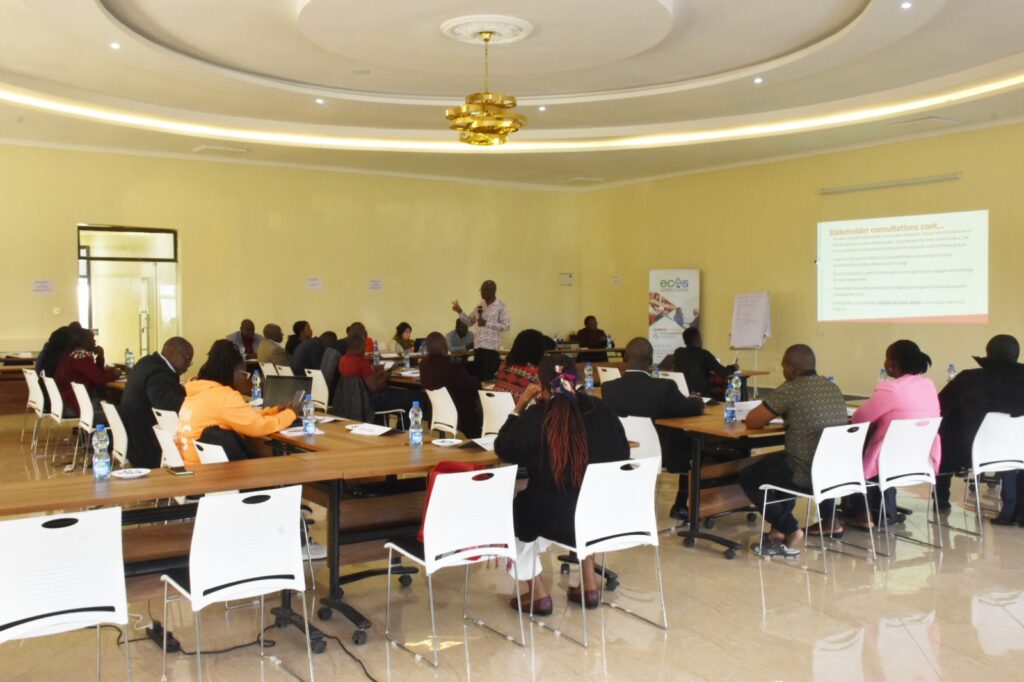
CONCEPT NOTE
INTERNATIONAL TRAINING ON SMALL AND MEDIUM ENTERPRISES AND NUTRITION – UPGRADING BUSINESS MODELS
COURSE BACKGROUND
Small and Medium Enterprises (SMEs) play a critical role in shaping food systems, particularly in developing countries. However, many SME models focus more on profitability than on nutrition, contributing to gaps in food quality and public health. This e-learning course “Small and Medium Enterprises and Nutrition: Upgrading Business Models”—is the second in a two-part series designed to support SMEs in integrating nutrition-sensitive practices into their business strategies. The course aims to transform SME contributions to food systems by embedding nutrition-focused principles, fostering more sustainable and inclusive development.
COURSE OBJECTIVES OF THE TRAINING
This training is designed to enable participants to:
- Understand and apply approaches for crafting nutrition-sensitive business visions, missions, and objectives.
- Identify and segment nutritionally vulnerable customer groups.
- Develop value propositions centered on nutritious food products.
- Identify strategic nutrition entry points across the SME value chain.
- Employ marketing tools to promote nutritious foods effectively.
- Build partnerships to support nutrition-sensitive initiatives.
- Explore and access financing options for nutrition-oriented SME investments.
WHAT YOU WILL LEARN
Upon completing the course, participants will be equipped to:
- Design and articulate a nutrition-sensitive business strategy.
- Recognize and prioritize customer groups at nutritional risk.
- Align business offerings with improved dietary outcomes.
- Integrate nutrition objectives across production, processing, and distribution activities.
- Develop targeted marketing strategies for nutritious products.
- Establish partnerships that enhance nutrition and business growth.
- Identify financial instruments and funding strategies that support nutrition-sensitive SMEs.
DURATION AND PROGRAM
TARGET PARTICIPANTS
This course is tailored for:
- SME trainers and business development service providers
- SME owners and managers in the food sector
- Policymakers and advisors focused on SME development, nutrition, and food systems
- Civil society actors and development practitioners promoting sustainable food systems
- Academics and learners interested in nutrition-sensitive enterprise models
TRAINING MODULES
| No | Module | Details | |
| Designing a Nutrition-Sensitive Strategy |
This module introduces the concept of nutrition-sensitive business strategies and helps SMEs understand how to align their business goals with public health and food security objectives. It emphasizes the importance of integrating nutrition into the core vision and mission of the enterprise.
Topics:
|
||
| Identifying Customers |
Targeting the right customers is crucial for impact and profitability. This module explores how to segment markets and identify nutritionally vulnerable groups, helping SMEs design inclusive and targeted interventions.
Topics:
|
||
| Developing a Value Proposition |
A compelling value proposition is central to business success. This module guides participants in developing offerings based on nutritious foods that meet both market demand and public health needs.
Topics:
|
||
| Integrating Nutrition in Business Activities |
Nutrition should be embedded across all core business activities—not treated as an add-on. This module helps SMEs identify entry points along the value chain where nutrition can be integrated meaningfully.
Topics:
|
||
| Marketing Nutritious Foods |
Promoting nutritious products effectively is essential for consumer uptake and business growth. This module focuses on marketing strategies that highlight the health benefits of nutritious products while appealing to target markets.
Topics:
|
||
| Building Partnerships |
No business operates in isolation. This module focuses on building strategic partnerships that enhance impact, share resources, and strengthen nutrition-sensitive approaches.
Topics:
|
||
| Getting Access to Finance |
Access to finance is a major constraint for many SMEs. This module explores financing mechanisms and investment opportunities that support the growth of nutrition-sensitive enterprises.
Topics:
|
||
TRAINING STYLE
The modules will be taught through PowerPoint presentations, and lectures and will include a case study/field visit, breakout sessions, case studies and other interactive discussion components.
The course will also include a few guest speakers, both in person and via Zoom and other online learning platforms for overseas speakers. This provides useful real-world insights alongside the more theoretical aspects of the course.
The conference faculty shall consist of experienced decision makers, as well as practitioners and representatives from established educational and research institutions active around climate change, engineering and international development. Throughout the course, theoretical presentation of concepts will be moderated and more group discussions and plenary engagements will be optimized. PowerPoint presentations will be made by facilitators and resource persons, to highlight key concepts before embarking on group work.
9. GENERAL NOTES
- Training manuals and additional reference materials are provided to the participants.
- Upon successful completion of this course, participants will be issued with a certificate.
- We can also do this as a tailor-made course to meet organization-wide needs. Contact us to find out more: info@ecasiafrica.org.
- Payment should be sent to our bank account before the start of training and proof of payment sent to: info@ecasiafrica.org.
ABOUT ECAS INSTITUTE
The ECAS Institute designs and delivers independent and targeted training, research, and consulting services. Our work focusses on climate change and resilience building, carbon markets, renewable energy, nature-based solution, biodiversity conservation, agriculture and food systems, We are located in Nairobi Kenya and work across the African region. We have implemented training and research assignments in Kenya, Tanzania, Uganda, South Sudan, Somalia, Malawi, Rwanda, Congo, and South Africa. Globally, we have supported our partners from the UK, Denmark, Italy, Sweden, Germany, and USA.

